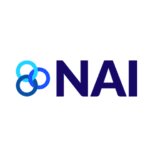Why track Finance (Fintech) and Insurance Key Performance Indicators?
The fusion of Finance (Fintech) & Insurance is driving unprecedented change in the industry, redefining how services are delivered, risks are assessed, and customer relationships are managed. To navigate this landscape successfully, understanding and leveraging the power of Key Performance Indicators (KPIs) is paramount. These metrics offer a clear lens through which insurers and Fintech players can evaluate their efforts, make informed decisions, and continuously optimize their operations. As technology continues to evolve, so will the nature of KPIs, ensuring that businesses remain agile, responsive, and aligned with the dynamic needs of customers in the realm of finance and insurance.
The convergence of finance (Fintech) and insurance has given rise to transformative advancements that are reshaping the industry. The marriage of technology and financial services, commonly known as Fintech, has opened new horizons for innovation in the insurance sector. Amidst these exciting changes, the role of Key Performance Indicators (KPIs) has become indispensable in gauging the success of Fintech-driven insurance endeavors.
This article delves into the world of finance (Fintech) and insurance Key Performance Indicators (KPIs), shedding light on their significance and providing insight into some of the most crucial metrics.
Understanding the Fintech-Insurance Nexus
Fintech and Insurance are two sectors that have traditionally operated with distinct approaches. However, the digital revolution has brought them together to create a more customer-centric, efficient, and data-driven industry. Fintech-driven solutions are enhancing every facet of insurance, from underwriting and claims processing to customer engagement and risk assessment. This synergy brings forth the need for meaningful KPIs that can accurately measure progress, identify areas of improvement, and optimize operations.
Customer Acquisition Cost (CAC)
This KPI calculates the cost of acquiring a new customer. With Fintech transforming customer engagement, understanding how much it costs to bring in new policyholders is essential for efficient resource allocation.
Customer Lifetime Value (CLV)
CLV assesses the total value a customer brings to the business over their entire relationship. This KPI helps Fintech-driven insurers determine the sustainability of their customer base and tailor their services to maximize long-term value.
Digital Adoption Rate
As Fintech innovations redefine how insurance services are delivered, tracking the rate at which customers adopt digital platforms, mobile apps, and online portals becomes critical.
Claims Processing Efficiency
Fintech solutions are streamlining claims processing through automation and data analytics. Measuring the time taken to process claims and the percentage of claims resolved within a specific timeframe showcases operational efficiency.
Underwriting Accuracy
Enhanced data analytics and AI-powered algorithms are refining underwriting processes. KPIs that evaluate underwriting accuracy help insurers gauge risk assessment effectiveness.
Customer Retention Rate
In a competitive landscape, retaining customers is as important as acquiring them. Monitoring the percentage of customers who renew policies is a key indicator of customer satisfaction and product relevance.
Digital Engagement Metrics
Metrics like app usage frequency, website visits, and time spent on digital platforms reveal how engaged customers are with Fintech-driven insurance services.
Fraud Detection Rate
The integration of advanced technologies enables improved fraud detection. KPIs focused on the number of fraudulent claims detected and prevented help assess the effectiveness of anti-fraud measures.
Conversion Rate
This metric evaluates the percentage of leads that convert into policyholders. It provides insights into the effectiveness of sales and marketing strategies.
Operational Efficiency Metrics
Metrics such as cost per policy, cost per claim, and administrative expenses relative to premium income help measure the operational efficiency of Fintech-driven insurance processes.




